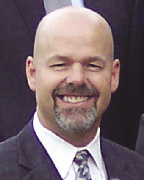The New England Land Title Association (NELTA) Annual Convention is once again upon us, and for the 45th time! This year we are fortunate enough to have some true luminaries speaking at the convention, industry leaders on the national level. I have had the privilege of hearing a number of our speakers in the past, and their presentations are always thoughtful, insightful and extremely polished. As my anticipation of the convention has grown, I began to contemplate the art of public speaking. How is it that these people are so adept at making us listen, learn and laugh?
My own evolution as a public speaker has somewhat of an ignominious origin. The first meaningful presentation that I made was in connection with my master's degree. I was a student at Rensselaer Polytechnic Institute pursuing a graduate degree in molecular genetics. Like any research-based graduate program, one must make a significant contribution to the body of scientific knowledge in one's field in order to receive a degree. One demonstrates his contribution and the significance of it by reducing one's research to a written thesis and presenting it in a public forum to the faculty of the university (and anyone else who cares to attend). It was the presentation of my master's thesis that kicked off my public speaking career.
As the day approached, it would be an understatement to say that I felt like a long-tailed cat in a room full of rocking chairs. Knowing that the best way to conquer my nerves was to be infinitely prepared, I did everything I could to get ready for the occasion. Having essentially lived in the lab for the preceding two years, I knew the research, methodology and data backward and forward. I carefully assembled the presentation so those in attendance who knew nothing of my research would understand it. The presentation would flow from the stack of overhead projector transparencies that I created depicting all manner of charts, graphs, data and even drawings of long, complex carbon chain molecules characteristic of the enzymes that were the subject of the research.
The big day arrived, and as I sat through the presentation that preceded mine, I grew increasingly nervous. As I looked around the auditorium, all I could think about was how nervous and intimidated I was. My thoughts wandered from person to person: "There is so and so, one of the founding fathers of molecular genetics." "There is the guy who invented DNA fingerprinting used by the crime labs." "There is the woman who genetically engineered the frost-free tomato (GMOs did not have the same stigma back then)." There is Ivar Giaever, the biophysicist who won the Nobel Prize in 1973 and whose lab is across the hall from mine." The list went on. There was not a single person in the auditorium who did not intimidate me.
Suddenly I heard my name.
The department chair, who was also my faculty advisor, just announced my presentation. As I approached the front of the auditorium, I noticed that I could not feel my body. How will I operate the overhead projector if I cannot feel my arms?! I introduced the topic and began my presentation. As I approached the overhead projector, courteously left on by the previous speaker, I realized that it was searingly hot. At that same moment, the feeling began to return to my body. I realized that I was perspiring profusely (think of the guy in the scene from the movie, Airplane) and sort of dizzy. I remember hearing words coming out of my mouth as I discussed my research and my conclusions. I remember moving the transparencies on and off the griddle. I cannot tell you much more than that. I know that when I finished there was applause, and some people in the audience even nodded approvingly. I do not know if I was completely dehydrated or simply relieved, but I stopped sweating. I felt my heart rate returning to normal. I asked the audience if there were any questions. No response. No hand was raised. Further relief, I was almost back to normal. Then a hand went up in the middle of the room. It was Dr. Giaever.
Fortunately, my body no longer reacts to public speaking the way it did back then (a good thing since a significant part of my job involves speaking in front of audiences of varying sizes). I learned early on that the best way to cope with the anxiety of public speaking was to follow the five rules:
1. Utilize humor at the beginning of the speech and conclude in a meaningful, memorable way;
2. Tell the audience what you are about to tell them, tell them it and tell them what you just told them;
3. Read the audience reaction to what you are saying and adjust accordingly. You are not only communicating with the audience, they are also communicating with you;
4. Do not write out the entire speech, use bullet points of a few words to prompt you. If you are well-prepared, you do not need the whole thing anyway; and
5. Do it as often as you can. This is the most important rule, and the number one rule for combating anxiety associated with public speaking.
NELTA has some fantastic speakers for you this weekend, people who have truly honed their craft to a sharp point. I know I am excited to see and hear them again. It has been my pleasure serving as your NELTA president. I look forward to seeing you all at the convention.
Gary Bernier is vice president, counsel at Stewart Title Guaranty Company, Bedford, N.H.
Tags:









